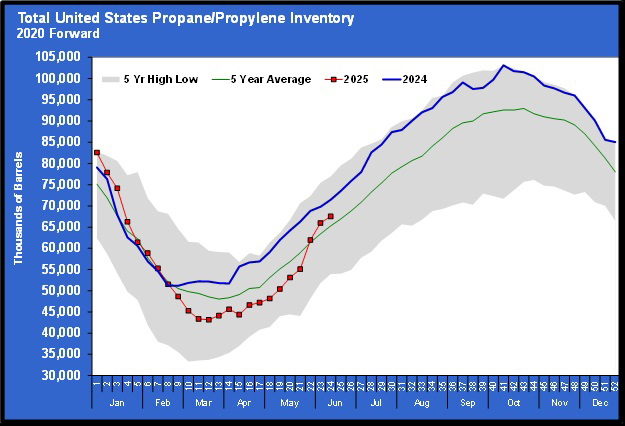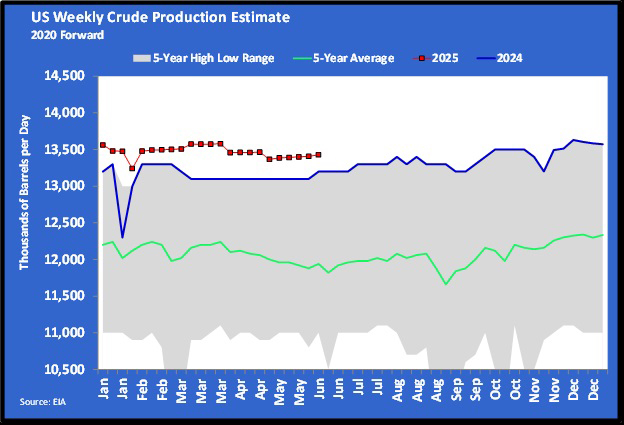Propane marketer provides perspective on decarbonization war

If a refinery produces renewable diesel, it has the ability to produce renewable propane. Photo: iStock.com/halbergman
Jeff Stewart peppered the Propane Education & Research Council (PERC) with hard-hitting messages about decarbonization efforts at the state level.
With his California-based Blue Star Gas on “the western front” of today’s decarbonization war, as he described, Stewart spoke at PERC’s July meeting in California, updating and educating the industry on a trending topic that he’s followed closely. He sought to underscore the magnitude of the situation for the industry, specifically for propane marketers, and to assess PERC’s activity in this area as the council develops a new strategic plan.
It’s hard to ignore the steps being taken to stymie an already-clean fuel like propane, as Stewart – in his quiet, calm and serious tone – listed some recent examples in a growing list: Of the Santa Rosa, California, City Council proposing an “all-electric ready” ordinance for new homes. Of Windsor, California, officials approving construction of a $100 million apartment complex with all-electric mechanicals and no gas lines. Of Seattle’s King County approving a six-month moratorium on building or expanding fossil fuel infrastructure. Of Portland, Oregon’s City Council adopting zoning code changes that ban the construction of new major fossil fuel terminals and the expansion of any existing ones.
Solution oriented
The good news is Stewart’s warning didn’t come without possible solutions, some of which are already in the works.
One of the more recently talked-about solutions is the development of renewable propane. A renewable component to LP gas can be used exactly like conventional propane, but it’s derived from renewable sources such as vegetable oils, animal oils or other triglycerides. A 2018 story in LP Gas cited at least two U.S. refineries with the capability to produce renewable propane.
“When [Western Propane Gas Association President and CEO] Joy [Alafia] and I go into meetings, we have to consistently position propane for transportation as a post-2030 fuel,” says Stewart, referring to California’s goal of having 5 million electric vehicles on the road by 2030. “We get seriously questioned and challenged about whether we really are a post-2030 fuel. The only thing that has allowed us to make that argument successfully … is renewable propane.”
As it looks to 2020 and beyond, PERC recognizes that it must pursue ways to help the propane industry take advantage of developments in renewable propane. Having a renewable propane option will help lower the fuel’s carbon intensity level, boost propane’s brand and please policymakers.
“When we talk about renewable propane, now’s the time to act,” says councilor Daniel Dixon of AmeriGas, who’s led the council’s strategic plan task force. “We’ve seen what’s going on in California and other states. We’ve got to make it a point – what can we do to help in the renewable propane push?”
On the offensive
Stewart sees the need for a national messaging campaign, featuring professionally created materials, to combat the decarbonization and “electrification of everything” movement.
With consumer campaigns an area of PERC expertise, the council has planned an October summit in Baltimore to discuss unified messaging and uncover ways to tell the industry’s story.
“How does propane fit in a world consumed by electrification?” PERC President and CEO Tucker Perkins says.
Coalitions can help the industry communicate its messages to consumers and key influencers, Stewart says. In fact, he feels, it’s a must.
“In many parts of the country, the most effective communication we can achieve will not have propane industry fingerprints,” Stewart says. “We have to be focused on coalitions. Our fingerprints are viewed as fossil fingerprints and immediately discredited.”
Stewart also spoke of what he sees as “the future of our industry” – distributed power generation, with propane-fueled systems that generate electricity, space heating and cooling, as well as hot water with plug-and-play interface with solar power systems.
“I see opportunity,” councilor Stuart Weidie of Blossman Gas said in response to Stewart’s presentation. “The question is: What are we going to do to seize the opportunity?”
















